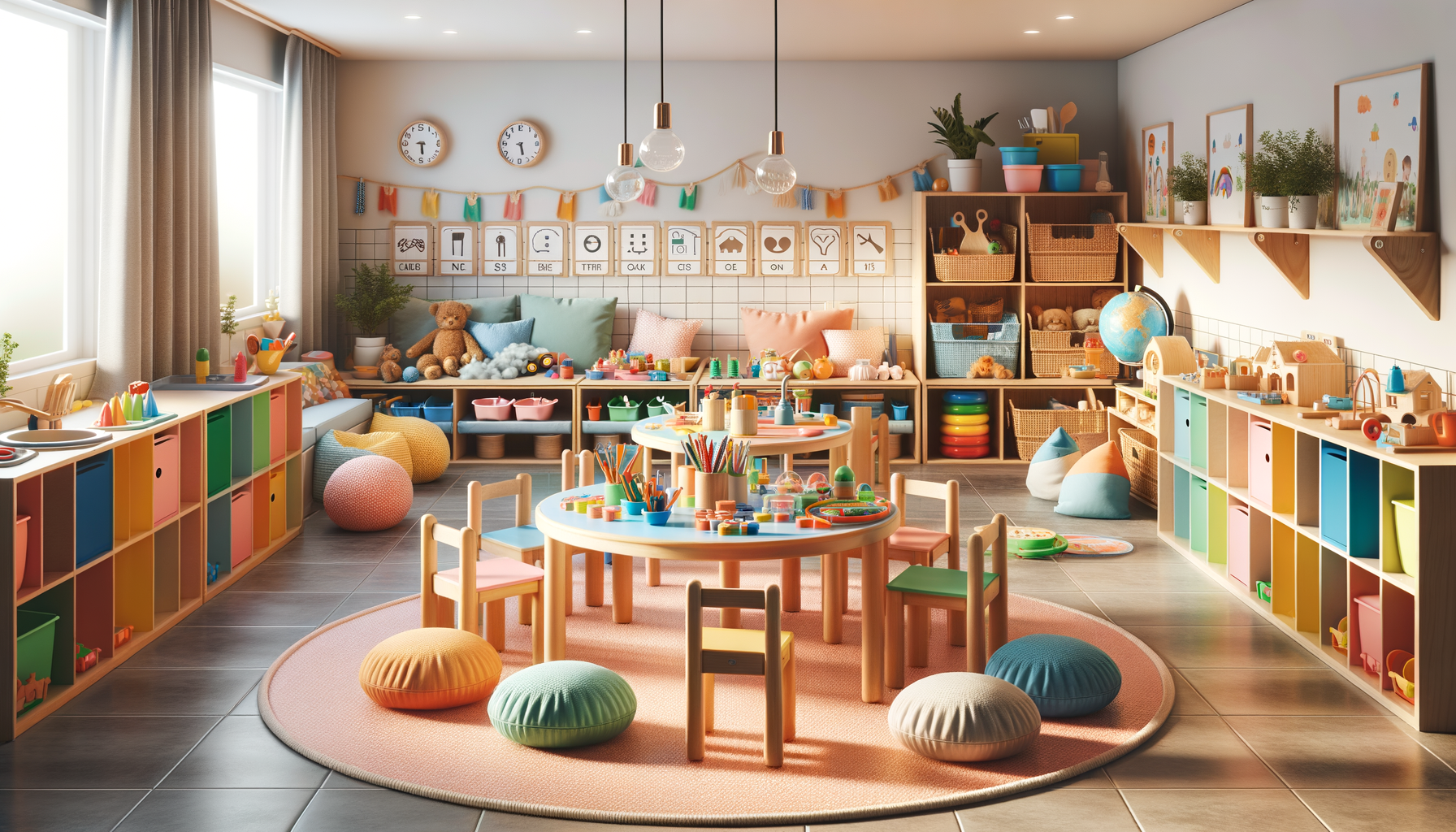Understanding the Importance of Routines in Early Childcare
Routines play a critical role in early childcare settings, providing a sense of security and predictability for young children. These structured patterns help children understand what to expect throughout the day, which can significantly reduce anxiety and help them feel safe. When children know what comes next, they can focus more on learning and socializing rather than worrying about what’s to come.
Research indicates that consistent routines can enhance cognitive development in young children. Activities such as circle time, snack time, and nap time are not just about keeping children busy. They are carefully planned to align with developmental milestones. For instance, circle time may include songs and stories that promote language development, while structured playtime encourages social skills and physical coordination.
Moreover, routines help in establishing a sense of responsibility and independence. Children learn to manage their belongings, follow instructions, and complete tasks, which are essential skills for future academic and life success. By incorporating routines, childcare providers can create a nurturing environment that supports both emotional and educational growth.
Roles of Caregivers in Shaping Childcare Environments
Caregivers in early childcare settings are more than just supervisors; they play a multifaceted role that includes being educators, nurturers, and role models. Their responsibilities extend beyond basic care to include fostering a child’s emotional, social, and cognitive development.
One of the primary roles of caregivers is to create a warm and welcoming environment. They do this by offering personalized attention and responding to each child’s unique needs. This approach helps in building strong, trusting relationships, which are foundational for a child’s development. Caregivers must be adept at observing and understanding children’s cues to provide the appropriate guidance and support.
Furthermore, caregivers are instrumental in implementing educational activities that align with developmental goals. They design programs that cater to various aspects of learning, such as language acquisition, motor skills, and social interaction. By doing so, they ensure that each child is engaged and challenged appropriately.
Caregivers also serve as role models, demonstrating positive behaviors and attitudes. Children often mimic the actions and words of adults around them, making it crucial for caregivers to exhibit behaviors such as kindness, patience, and empathy. This modeling helps children learn how to interact with others in a respectful and considerate manner.
The Impact of Structured Play on Child Development
Structured play is a cornerstone of early childcare environments, offering numerous benefits for children’s development. Unlike free play, structured play is guided by specific objectives and often involves activities that are planned to target particular developmental skills.
One of the key benefits of structured play is its ability to foster social skills. Activities that require children to work together, share, and communicate effectively teach them how to collaborate and resolve conflicts. These skills are essential for building friendships and functioning well in group settings.
Structured play also supports cognitive development by encouraging problem-solving and critical thinking. Games and activities that require children to follow rules, make decisions, and strategize can enhance their mental agility and creativity. For example, puzzles and building blocks are excellent tools for developing spatial awareness and logical reasoning.
Furthermore, structured play can promote physical development. Activities that involve movement, such as obstacle courses or dance, help improve coordination, balance, and overall physical fitness. These activities are not only fun but also contribute to a child’s health and well-being.
Creating a Balanced Daily Schedule in Childcare Settings
Designing a balanced daily schedule is crucial in early childcare environments to ensure that children receive a well-rounded experience. A thoughtfully planned schedule includes a mix of activities that cater to different developmental needs, such as cognitive, physical, social, and emotional growth.
A typical daily schedule might start with free play to allow children to settle in and socialize. This is often followed by more structured activities, such as circle time, where caregivers can introduce new concepts and reinforce learning through songs and stories. Snack time provides a necessary break and an opportunity to practice social skills, such as sharing and manners.
Physical activities are essential components of the daily schedule. These can include outdoor play, which allows children to explore and engage with their environment, or indoor activities like dance or yoga to promote movement and flexibility.
Nap time is another critical part of the schedule, offering children a chance to rest and recharge. Adequate rest is vital for young children’s growth and development, helping them to process the day’s learning and experiences.
Finally, the day often concludes with a period of reflection, where children can discuss what they learned and express their thoughts and feelings. This helps in reinforcing new knowledge and supporting emotional development.
Challenges and Solutions in Early Childcare Routines
While routines are beneficial, implementing them in early childcare environments can present challenges. One common issue is the diverse needs of children, which can make it difficult to establish a one-size-fits-all routine. Children have varying attention spans, energy levels, and learning paces, requiring caregivers to adapt routines to meet individual needs.
To address these challenges, flexibility is key. Caregivers can create adaptable routines that allow for adjustments based on children’s responses and needs. For example, if a particular activity is not engaging the children, caregivers can modify it to better capture their interest.
Another challenge is maintaining consistency, especially when dealing with staff changes or varying schedules. Consistency is crucial for children to feel secure and understand expectations. Training and communication among staff can help ensure that routines are upheld even when personnel changes occur.
Moreover, engaging parents in the routine-setting process can enhance consistency between home and childcare settings. Regular communication with parents about routines and expectations can help reinforce the structure and support children’s adjustment to the childcare environment.
By addressing these challenges with thoughtful solutions, caregivers can create effective routines that support children’s development and well-being.




Leave a Reply